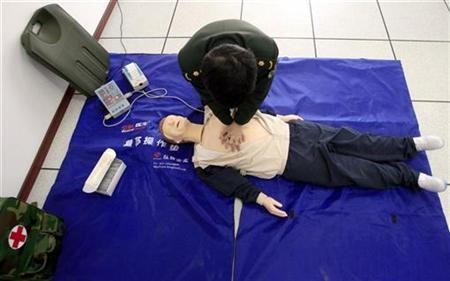A new mobile app helps to match cardiac arrest victims with CPR volunteers. Researchers conducted a new study that showed the emergency system could be life-saving.
Swedish researchers used a cellphone notification system to find cardiopulmonary resuscitation (CPR) experts in close proximity. The CPR specialists could then revive people experiencing cardiac arrest before first responders arrive.
The findings were published in the New England Journal of Medicine.
Such "on call" systems can handle various health emergency situations, such as heart attacks. SMS Lifesavers is the name of the health app-based system the researchers used.
The life-saving mobile app helped to increase the number of emergency CPR users by 30 percent. Cardiac arrest is a medical emergency in which the human heart's electrical system stops functioning.
Dr. Jacob Hollenberg, an associate professor at the University of Gothenberg, said in a news release that the results are better than other methods such as "mass public training." Other systems have shown small increases in CPR use.
A larger second study of 30,000 patients, which also included the text message alert system, showed that when bystanders performed CPR, 10 percent of cardiac arrest victims stayed alive. Without them, the survival rate dropped 6 percent.
The study, which included 10,000 CPR volunteers, was conducted in the Stockholm area. It used a smartphone positioning system with the same tech as GPS tracking.
The mobile system alerted volunteer network members after the dispatching of hospital, fire, or police emergency responders. It worked within a one-third-mile (.5 km) radius.
When the cardiac arrest app was used CPR was administered 62 percent of the time, and only 28 percent of the time without it, according to 13 WMAZ. The SMS system produced a 30 percent increase.
According to the American Heart Association (AHA), around 359,000 Americans yearly suffer cardiac arrest outside hospitals, and bystanders perform CPR in around 40 percent of those cases.
However, over 92 of cardiac arrests outside medical centers result in death, according to Pioneer News. Getting CPR within three minutes often keeps people alive.
A mobile app system could save lives. The AHA states that immediate and proper CPR can double or triple survival rates of cardiac arrest victims.



























